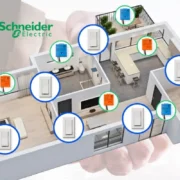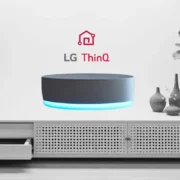Table of Contents
- Understanding Smart Home Lighting Systems
- Components of Smart Lighting Systems
- Benefits of Smart Lighting Systems
- Types of Smart Lighting Systems
- Installation and Setup
- Advanced Features and Integrations
- Choosing the Right Smart Lighting System
- Popular Smart Lighting Brands
- Tips for Optimizing Your Smart Home Lighting
- FAQs
- Product Suggestions
Lighting plays a pivotal role in creating the perfect ambiance in any home. When integrated with smart technology, lighting systems not only enhance the aesthetic appeal but also offer convenience, energy efficiency, and improved functionality. In this comprehensive guide, we will delve into advanced lighting systems for your smart home, exploring various options, benefits, and tips for creating the ideal lighting environment.
Understanding Smart Home Lighting Systems
The Evolution of Smart Lighting
Over the years, lighting has evolved from simple incandescent bulbs to sophisticated smart lighting systems. These systems can be controlled remotely, customized to match personal preferences, and even integrated with other smart home devices for seamless automation.
Components of Smart Lighting Systems
A typical smart home lighting system comprises several components, including smart bulbs, light strips, switches, and hubs. Each of these components plays a crucial role in ensuring that the lighting setup is efficient and versatile.
- Smart Bulbs: These are the most common components, offering a range of colors, brightness levels, and scheduling options.
- Smart Light Strips: Perfect for accent lighting, these strips can be placed under cabinets, behind TVs, or along pathways.
- Smart Switches: These replace traditional light switches and allow for both manual and remote control of lights.
- Smart Hubs: These central devices connect all smart lighting components, enabling them to communicate with each other and with other smart home devices.
Benefits of Smart Lighting Systems
Energy Efficiency
One of the most significant benefits of smart lighting is its energy efficiency. Smart bulbs use LED technology, which consumes less power compared to traditional incandescent bulbs. Additionally, smart systems allow for precise control over lighting usage, reducing unnecessary energy consumption.
Convenience and Control
Smart lighting systems can be controlled via smartphone apps, voice assistants, or automated schedules. This convenience means you can adjust your home’s lighting from anywhere, at any time. Imagine turning off all the lights with a simple voice command or setting them to gradually brighten as you wake up.
Enhanced Security
Smart lighting can enhance home security by creating the illusion of occupancy. Lights can be programmed to turn on and off at random intervals when you’re away, deterring potential intruders.
Customization and Mood Setting
Smart lighting offers unparalleled customization options. Whether you want to create a cozy atmosphere for a movie night or a vibrant setting for a party, smart bulbs can change colors and intensity to match any mood or occasion.
Types of Smart Lighting Systems
Voice-Controlled Lighting
Voice-controlled lighting systems, such as those integrated with Amazon Alexa or Google Assistant, allow for hands-free operation. Commands like “Alexa, turn off the living room lights” or “Hey Google, set the bedroom lights to 50% brightness” make managing your home lighting effortless.
Motion-Sensor Lighting
Motion-sensor lighting adds an extra layer of convenience and security. These lights automatically turn on when motion is detected, making them ideal for areas like hallways, staircases, and outdoor spaces.
Daylight Harvesting Systems
Daylight harvesting systems adjust the artificial lighting based on the amount of natural light available. This ensures optimal lighting levels throughout the day while conserving energy.
Circadian Lighting
Circadian lighting systems are designed to mimic natural light patterns, supporting your body’s natural rhythms. These systems can help improve sleep quality, boost productivity, and enhance overall well-being.
Installation and Setup
DIY Installation vs. Professional Installation
While many smart lighting systems are designed for easy DIY installation, more complex setups may require professional assistance. Consider your comfort level with technology and wiring when deciding between DIY and professional installation.
Setting Up Your Smart Lighting System
- Choose Your Components: Start by selecting the smart bulbs, switches, and hubs that best meet your needs.
- Install the Hardware: Follow the manufacturer’s instructions to install your smart bulbs and switches. This usually involves replacing traditional bulbs and switches with smart ones.
- Connect to the Hub: If your system requires a hub, connect it to your home Wi-Fi network and follow the setup instructions.
- Configure the App: Download the corresponding app and pair your devices. This app will allow you to control and customize your lighting system.
- Integrate with Other Devices: If you have other smart home devices, integrate them with your lighting system for enhanced automation and control.
Advanced Features and Integrations
Integration with Smart Home Ecosystems
Smart lighting systems can be integrated with broader smart home ecosystems, such as Amazon Alexa, Google Home, and Apple HomeKit. This integration allows for centralized control of all your smart devices, creating a cohesive and efficient smart home environment.
Automated Schedules and Scenes
Automated schedules and scenes can be set up to match your daily routine. For instance, you can create a “Good Morning” scene that gradually brightens the lights and turns on
your coffee maker, or a “Good Night” scene that dims the lights and locks the doors.
Remote Access and Control
Remote access allows you to control your home’s lighting from anywhere in the world. This is particularly useful for turning lights on or off when you’re away, ensuring your home always looks occupied.
Energy Monitoring
Some smart lighting systems come with energy monitoring features, providing insights into your energy consumption. This data can help you make informed decisions to further reduce your energy usage and costs.
Choosing the Right Smart Lighting System
Assessing Your Needs
Before choosing a smart lighting system, assess your needs and preferences. Consider factors such as the size of your home, the areas you want to illuminate, and the level of control and customization you desire.
Compatibility with Existing Devices
Ensure that the smart lighting system you choose is compatible with your existing smart home devices and ecosystem. This compatibility will make integration and control much more seamless.
Budget Considerations
Smart lighting systems can range from affordable options to high-end setups. Determine your budget and choose a system that offers the best value for your money without compromising on essential features.
Popular Smart Lighting Brands
Philips Hue
Philips Hue is one of the most popular and versatile smart lighting systems on the market. Known for its extensive range of products and seamless integration with major smart home platforms, Philips Hue offers a reliable and user-friendly experience. Explore Philips Hue products here.
LIFX
LIFX offers high-quality smart bulbs that do not require a hub, making them easy to set up and use. With vibrant colors and excellent brightness, LIFX bulbs are perfect for creating dynamic lighting scenes. Discover LIFX options here.
Sengled
Sengled provides a variety of smart lighting products at affordable prices. Their bulbs are known for their energy efficiency and robust performance, making them an excellent choice for budget-conscious consumers. Check out Sengled products here.
Nanoleaf
Nanoleaf is famous for its unique, modular light panels that can be arranged in various patterns to create stunning visual displays. Ideal for adding a touch of creativity to your home, Nanoleaf panels are also fully customizable. Learn more about Nanoleaf here.
Tips for Optimizing Your Smart Home Lighting
Layer Your Lighting
Layering involves using different types of lighting to create a balanced and functional space. Combine ambient, task, and accent lighting to enhance both the functionality and aesthetics of your home.
Use Dimmers and Sensors
Dimmers and sensors can significantly improve the flexibility and energy efficiency of your lighting system. Dimmers allow you to adjust the brightness to suit your needs, while sensors ensure lights are only on when needed.
Experiment with Colors and Temperatures
Smart bulbs offer a wide range of colors and temperatures. Experiment with different settings to find the perfect combination for each room. Warm tones are ideal for relaxing spaces, while cooler tones can boost productivity in work areas.
Create Lighting Zones
Divide your home into different lighting zones, each with its own settings and controls. This allows for more precise control and customization, ensuring each area is perfectly lit for its intended purpose.
Regularly Update Your System
Manufacturers frequently release updates to improve the performance and security of smart lighting systems. Regularly check for and install updates to keep your system running smoothly.
FAQs
Product Suggestions
| Product | Includes | Approximate Cost | Link |
|---|---|---|---|
| Philips Hue Starter Kit | 3 smart bulbs and a hub | $169.99 | Philips Hue Starter Kit |
| LIFX A19 Wi-Fi Smart LED Light Bulb | 1 smart bulb | $49.99 | LIFX A19 Wi-Fi Smart LED Light Bulb |
| Sengled Smart LED Multicolor A19 Starter Kit | 2 smart bulbs and a hub | $59.99 | Sengled Smart LED Multicolor A19 Starter Kit |
| Nanoleaf Shapes Hexagon Smarter Kit | 7 light panels | $199.99 | Nanoleaf Shapes Hexagon Smarter Kit |
| TP-Link Kasa Smart Wi-Fi Light Bulb | 1 smart bulb | $19.99 | TP-Link Kasa Smart Wi-Fi Light Bulb |
| Wyze Bulb Color | 4 smart bulbs | $34.99 | Wyze Bulb Color |
| GE CYNC Smart LED Light Bulb | 2 smart bulbs | $24.99 | GE CYNC Smart LED Light Bulb |
| Yeelight Smart LED Bulb | 1 smart bulb | $25.99 | Yeelight Smart LED Bulb |
| Govee RGBIC Smart LED Strip Lights | 16.4 ft LED strip | $39.99 | Govee RGBIC Smart LED Strip Lights |
| Eufy Lumos Smart Bulb | 1 smart bulb | $19.99 | Eufy Lumos Smart Bulb |
Smart home lighting systems offer a myriad of benefits, from enhanced convenience and energy efficiency to improved security and customization. By understanding the different components, types, and features of these systems, you can make informed decisions and create the perfect lighting environment for your home. Whether you’re just starting with smart lighting or looking to expand your existing setup, this comprehensive guide provides the insights and tips you need to illuminate your smart home.











Comments